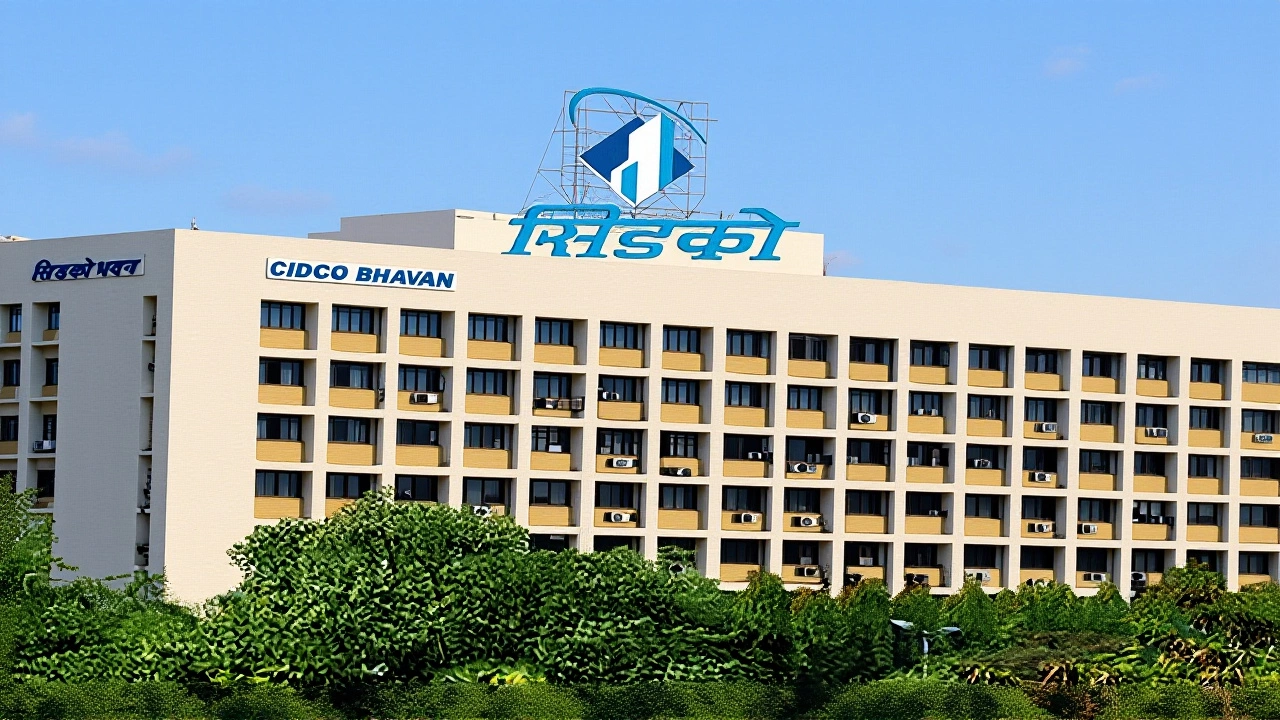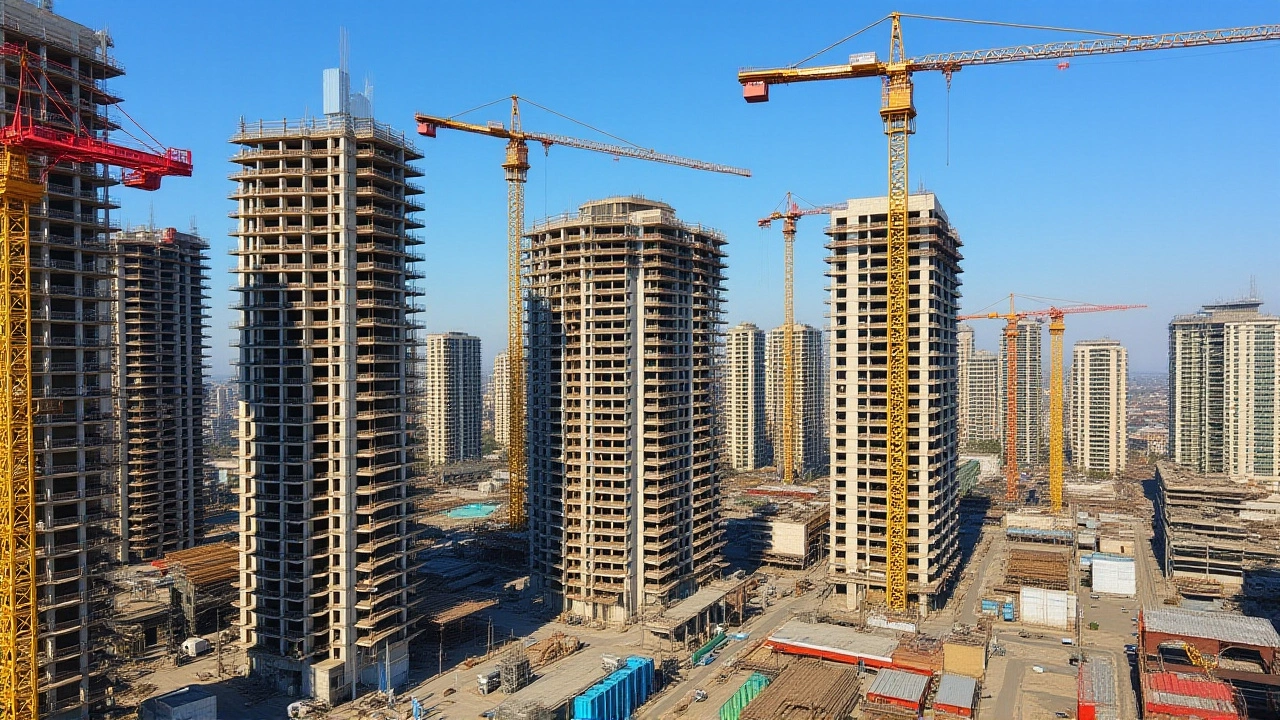For the first time in over a decade, real estate developers in Maharashtra can now sell flats built on government or civic agency land without seeking a No Objection Certificate (NOC). The Maharashtra Stamp and Registration Department issued a clarificatory circular on Thursday, effectively overturning a confusing amendment from April that had created bureaucratic gridlock across Mumbai and Navi Mumbai. The move, signed by Deputy Inspector General Dharmdev Menkar, removes a major roadblock for projects built on land owned by MHADA, CIDCO, MIDC, and municipal corporations. It’s a win for thousands of buyers and builders alike — and it’s already sending ripples through the state’s housing market.
What Changed, and Why It Matters
The confusion began in April when the Stamp and Registration Department amended Section 18(A)(1)(B) of the Maharashtra Stamp Act. The amendment appeared to require NOCs from land-owning agencies before any transfer of property could be registered. But here’s the twist: those agencies — MHADA, CIDCO, MIDC — never had the legal authority to issue such certificates in the first place. The result? Developers sat idle. Buyers panicked. Registrars demanded fees. And projects worth billions of rupees ground to a halt. "It was a legal fiction," says Advocate Shripad Parab, Expert Director at the Maharashtra State Housing Federation. "The department was applying a rule that didn’t exist. This circular finally aligns practice with the law. No more delays. No more extortionate fees. Just clean, legal transfers."Cooperative Societies Get Same Relief
The relief didn’t stop with government land. The Maharashtra Cooperative Department issued a parallel circular, clarifying that cooperative housing societies no longer need NOCs from the Registrar to undertake redevelopment. For years, registrars had been charging societies ₹15,000 to ₹50,000 per flat just to approve redevelopment plans — often dictating which builder could be hired. Some even delayed approvals for months, creating a de facto monopoly. "This was never the law," says the circular, citing the Maharashtra Cooperative Societies Act, 1960 and the 2019 Government Resolution. "There is no provision giving the Registrar the power to grant NOC for redevelopment." Now, if a member feels wronged, they can directly approach the Cooperative Court under Section 91 — no middlemen, no bribes, no delays.
Financial Freedom for Societies
But the real game-changer? A draft set of rules unveiled by the Cooperative Department, which proposes allowing societies to borrow up to 10 times the land cost for redevelopment. That’s not a suggestion — it’s a structural shift. Previously, societies struggled to secure financing because lenders saw their land as non-transferable collateral. Now, with clear legal backing and the removal of NOC barriers, banks and NBFCs are expected to offer lower interest rates and longer tenures. "Imagine a 30-year-old society in Andheri with land worth ₹50 crore," says Navi Mumbai resident Ajay M. "Under the old system, they could borrow ₹5 crore max. Now, they can borrow ₹500 crore. That’s enough to redevelop without selling half the units to a builder. They can do it themselves." The draft also includes virtual AGMs, standardized service charges, and simplified dispute resolution — all designed to empower residents, not bureaucrats.Why This Is Historic
This isn’t just administrative cleanup. It’s a quiet revolution in urban housing governance. For decades, government land and cooperative societies operated under layers of red tape that benefited middlemen, not homeowners. Developers were forced to pay "NOC charges" — a euphemism for bribes. Societies were held hostage by registrars who acted more like gatekeepers than regulators. Now, the state is saying: trust the process. Trust the law. Trust the people. "The goal of penalties is discipline, not punishment," Ajay adds. "But when interest rates are sky-high and fines are arbitrary, it crushes ordinary families. This change doesn’t just fix paperwork — it restores dignity."
What’s Next?
The draft cooperative rules are now open for public feedback. The Cooperative Department plans to incorporate all suggestions before forwarding them to the Principal Secretary for final approval. Once notified in the official gazette, these rules will become binding across all 36 districts of Maharashtra. Experts predict a 20-30% surge in redevelopment projects over the next 18 months. Property values on government land are expected to rise sharply — not because of speculation, but because legal clarity has unlocked latent value. And for the first time, a developer in Thane, a society in Pune, or a resident in Nagpur can look at their building and think: "We own this. We can fix it. No one else has to say yes."Frequently Asked Questions
Does this mean developers can now sell flats on government land without any oversight?
No. The NOC requirement is gone, but all other legal and regulatory norms still apply. Developers must still comply with building bylaws, environmental clearances, and occupancy certificates. The change removes only the bureaucratic hurdle of getting approval from MHADA, CIDCO, or municipal bodies to transfer ownership. The property’s legality remains intact under existing laws.
How will this affect homebuyers looking to purchase flats on government land?
Buyers will benefit from faster transactions, lower costs, and greater transparency. Previously, buyers paid hidden fees to secure NOCs — often 3-5% of the property value. Now, those fees vanish. Registration will proceed smoothly, and title clarity improves. This reduces fraud risks and makes financing easier for home loans.
Can cooperative societies now redevelop without builder approval?
Yes. Societies can now choose any developer or opt for self-redevelopment without needing Registrar approval. The decision rests solely with the general body of members, provided they follow the 2/3rd majority rule under the Cooperative Act. This gives residents real control — not just over construction, but over pricing, timelines, and design.
What happens if a society member disagrees with the redevelopment decision?
They can directly file a complaint in the Cooperative Court under Section 91 of the Maharashtra Cooperative Societies Act. There’s no need to go through the Registrar or wait for bureaucratic clearance. The court can stay the project, order compensation, or even nullify the resolution if it finds procedural violations — ensuring fairness without delays.
Why is the 10x loan limit such a big deal?
Before, societies could borrow only 1-2 times the land value, making redevelopment financially unviable. With 10x borrowing, a society can fund entire redevelopment projects without selling units to developers. This means residents retain ownership, avoid inflated prices, and get better-quality housing. It turns cooperative housing from a liability into an asset.
When will these new rules take effect?
The NOC removal is effective immediately. The draft cooperative rules are open for public feedback until the end of the month. After incorporating suggestions, they’ll be sent to the Principal Secretary for approval. Once published in the Maharashtra Gazette, they’ll become law — likely by late September or early October 2025.
